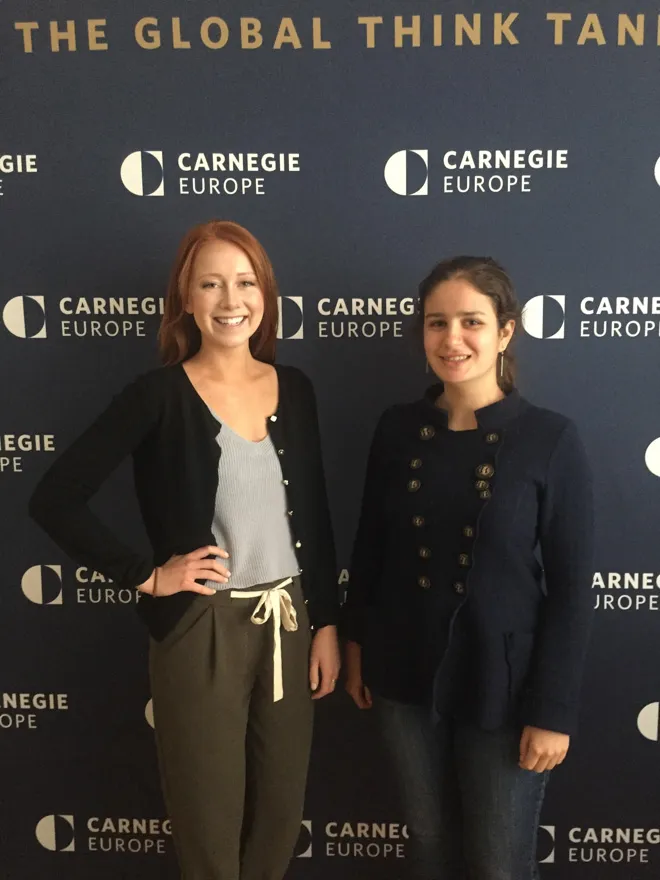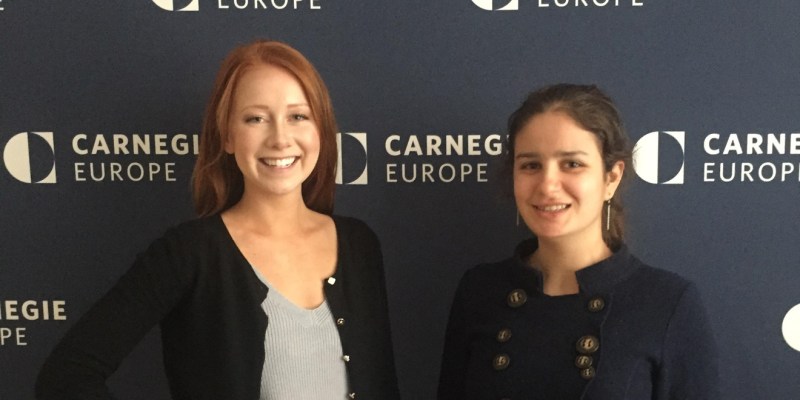In the wake of events like Brexit and Russian hackers’ attempts to interfere in the 2016 U.S. election, Stanford students may feel overwhelmed by the chaos and controversy of today’s political climate. The European Security Undergraduate Network (ESUN), a new student group on campus, aims to help students make sense of current events involving Europe.
ESUN hopes to unite world-class scholars with Stanford students eager to delve deeper into issues of European security and make meaning of contentious topics such as lack of transparency in U.S.-Russia relations or ongoing debates about immigration and the Syrian refugee crisis. ESUN’s various initiatives include working with Stanford’s Freeman Spogli Institute and the European Security Initiative to bring government and world leaders to speak on campus about pressing topics.
Sarah Manney ’18, the president and co-founder of ESUN, said that she and her colleagues founded ESUN in order to demonstrate that young people are interested in European issues. She and the five other board members hope to ensure that Stanford students can contribute to a productive political conversation.
“Our job is really to remind people that the issues go far beyond what you see in the news and the headlines about fake news or Russian hacking,” Manney said. “There’s really a long history of issues that have been going on in Europe and in the transatlantic relationship that deserve our attention.”

The group’s leaders emphasized that being an international relations or political science major is by no means a prerequisite for membership in ESUN. They believe that there are countless European issues that require bringing together the human aspect of social studies with the technical skills of the sciences, including cybersecurity, the use of false information to influence public opinion, arms control and engineering and nuclear proliferation.
For students who love to write, ESUN has partnered with Stanford Politics, a campus publication. Every week, ESUN publishes an article under the pseudonym “Cardinal Richelieu” — the name of a 17th century French noble — highlighting European issues that are relevant to campus today. In the last month, Cardinal Richelieu has written about the 100th anniversary of the October Revolution, information warfare as a modern-day Waterloo and the way that military conscription in Austria “challenges our understanding of soldier versus civilian.”
For members interested in research, ESUN facilitates interactions with prominent professors at the Freeman Spogli Institute (FSI), a research hub that Manney described as a “global studies think tank” right on campus. Professors involved with ESUN include former U.S. Ambassador to Russia Michael McFaul and former Secretary of State Condoleezza Rice. Manney sees the interactions ESUN encourages as a rare opportunity for students to gather insight on issues these researchers care about — and even propose their own ideas.
When government officials and leaders speak on campus, ESUN hosts small-group discussions for students who crave in-depth conversations about politics. On Nov. 18, ESUN hosted a talk with Celeste Wallander, former special assistant to President Obama, senior director for Russia and Eurasia on the National Security Council and current president of the U.S.-Russia Foundation.
And for the “techies” on campus, ESUN plans to host a Cyber Security Simulation in the spring. Ben Gardner-Gill ’19, vice president of the Simulation, said that the event will allow students to pair up and represent a certain country. Under the supervision of faculty and advisors, the country partnerships will debate key issues at the intersection of technology and policy.
“The substance of the debate is cybersecurity — it’s all about the new types of technology that go into warfare, which are fundamentally changing the way we think about war,” Gardner-Gill said. “[Cyber warfare] is part of a gray zone that today’s citizens are left to grapple with.”
As an example, Gardner-Gill pointed to the Stuxnet computer virus that the U.S. and Israel launched against Iran four years ago. He noted that Stuxnet isn’t easily classified as a weapon, unlike tanks rolling across the border or even espionage.
Gardner-Gill said that the simulation in the spring will help students understand the complexity that comes with using the internet for cyberattacks, infiltration and sabotage.
“Cyber warfare is unknown, but something this generation is going to have to deal with,” he said.
Gina Gonzales, a program coordinator at the Freeman Spogli Institute, believes that living in an increasingly globalized world requires a deeper understanding that current events in Europe will have an impact across the world.
“FSI wants to give students a chance to be bold and ask questions of international leaders,” Gonzales said. “We hope that our programs will give them the professional background to shape the future by being the next generation of leaders.”
Manney echoed Gonzales’ sentiment, and she said she hopes more students will understand the reach and repercussions of European events.
“No matter what country, what region, what department you have an interest in, it’s really important to engage in a dialogue about how these issues affect our partnerships and alliances in America and around the world,” she said.
Contact Melissa Santos at melissasantos ‘at’ stanford.edu.
